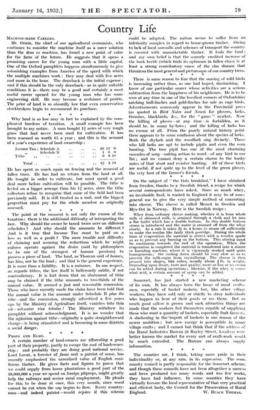The point at the moment is not only the excess
of the taxation : there is the additional difficulty of interpreting the law. Why should the owner be taxed twice over on different schedules ? And why should the amounts be different ? And is it true that Income Tax must be paid on a loss as well as a profit Y The mere trouble and difficulty of claiming and securing the reductions which he might enforce operate against the desire (said by philosophers to be one of the strongest of human passions) to possess a piece of land. The land, as Thoreau said of houses, has him, not he the land ; and that is the general experience.
It is more than a liability. It is a *same. In one respect, as regards tithes, the law itself is ludicrously subtle, if not contradictory. It is laid down that an abatement of tithe may be claimed if the tithe amounts to two-thirds of the annual value. It seemed a just and reasonable concession. Those who have recently made the claim have been told that the annual value is the amount under Schedule B plus the tithe—and the concession, strongly advertised a few years Igo by the Ministry of Agriculture itself, vanishes into thin air—sokuntur risu labulee l The Ministry withdrew its pamphlet without acknowledgment. It is no wonder that the agitation against tithe—originally a quite straightforward charge—is being stimulated and is becoming in some districts a social danger.
• * l'HOPS AND ELMS.


































 Previous page
Previous page